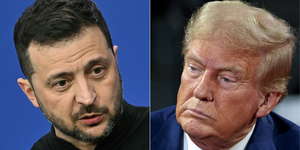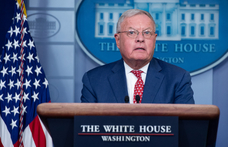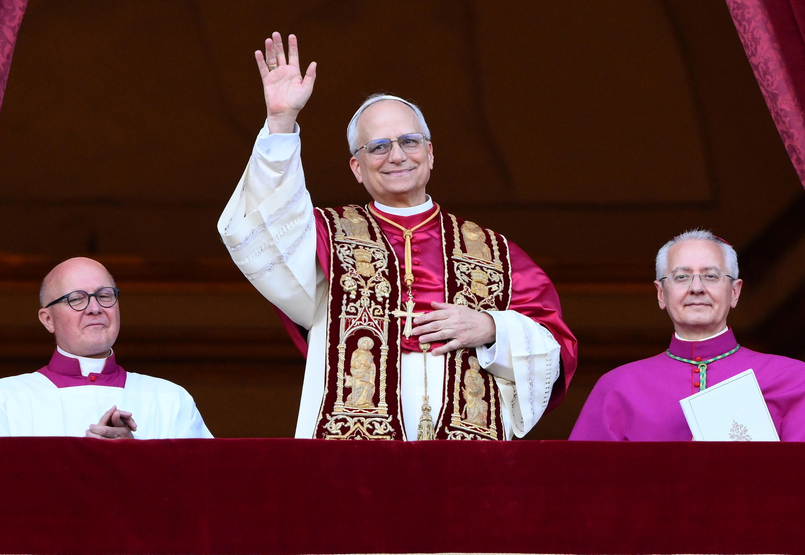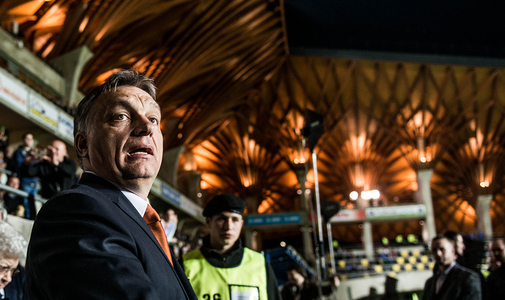A Budapest Olympics
No serious leader can take seriously the idea of Budapest holding the 2020 Olympics: given Hungary's budget and global financial conditions, it would simply be an impossibly expensive prestige investment. The idea is probably being floated because a project on this scale makes available vast sums of money to the government that happens to be in power, money that can be distributed and spent on creating jobs and self-promotion. Politicians can use that money to keep their clients happy.
Maybe it really is the case that the economic crisis is causing people to use their mental balance. Our politicians are already hallucinating away. Currently, these visions are taking the form of sparkling halos above their colleagues' heads. Five, to be precise. Clearly, this state of altered consciousness results from Budapest's city government's decision to approve a bid for the 2020 Olympics. It's a mere detail that undertaking this kind of adventure right now will lead to the country's guaranteed bankruptcy. When the benefit and pension systems are on their last legs, when the healthcare system is desperately undercapitalised, and when hundreds of villages are being riven by ethnic tensions, planning an Olympic bid is a cynical attack on good sense and our wallets.
Viktor Orban was the first post-regime change politician to hallucinate about the Olympics. His idea, which he floated just before the 2002 elections, was supported not just by the right wing. Gabor Demszky, mayor of Budapest, and Peter Medgyessy, the Socialist prime minister, also supported the idea. Orban's aim was to broaden his support base. But the enthusiasm wained after the election campaign, before being wholly forgotten when PriceWaterhouse produced a study estimating the cost of such a venture at Ft4,600bn - roughly equal to Hungary's annual state budget. We could add that the cost of the 2004 Athens Olympics overshot by 75 per cent.
But some continued to push the issue. A group of celebrities, businessmen and sportsmen calling themselves the Budapest Olympics Movement started lobbying. Meanwhile, the date was pushed back, first to 2016, and then to 2020. The aim is simple: to persuade legislators to support an application and provide hundreds and thousands of millions to support the project. Why do they want this? For sport managers, it's obvious. In Beijing, Hungarian sport met its Trianon.
Our team collapsed. For our sport bureaucracy, which is still suffering from the Kadarist legacy of overdependence on the state, an Olympic games would be a kind of redemption. Who cares about the number of gold medals if we're hosting the Olympics? Especially since the games would ensure a bounteous stream of public money which could be distributed in the most untransparent fashion.
Regardless of whether Hungary would collapse under the strain, it would be good business. This is because "the Olympics impose a kind of strait jacket - once begun, the investments can't be stopped even if they cost more than planned, meaning that extra money has to be taken away from other projects," according to one study. So there's no way out, even if costs get out of control. Furthermore, the Olympics need the kind of sporting infrastructure which Hungary would be unable to make full use of after those two weeks of summer games. Maintaining that infrastructure would cost even more money. And we should remember the kind of trouble we've been having with giant projects like the fourth metro or Pecs's Cultural Capital of Europe season - and these are small projects compared to the Olympics.
It's just a statist fantasy to claim that the problems would all be solved by implementing self-serving megalomaniac plans that would make a Pharaoh blush. Certainly, the Olympics would lead to an artificial, short-term rise in employment levels and economic prosperity. But the decline afterwards would be all the sharper. As benefits are cut around the country, maybe the population isn't so stupid as to allow itself to be dragged in this kind of game.
László Tamás Papp


















